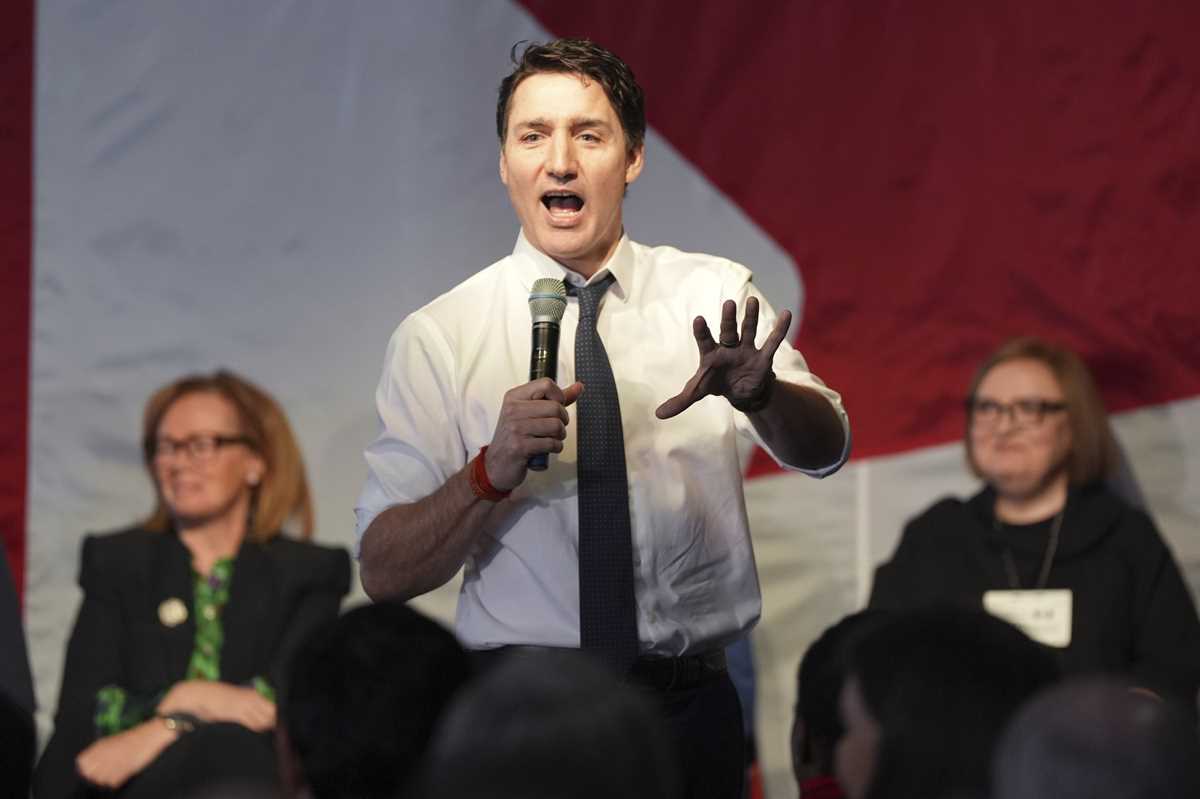Trump's Tariff Threats: A Canadian Perspective
The escalating tensions between Canada and the U.S. have prompted discussions on trade, sovereignty, and cross-border security. Explore how Prime Minister Trudeau navigates these challenges amid Trump's tariff threats.
Published February 08, 2025 - 00:02am

Image recovered from marketbeat.com
The political and economic landscape between Canada and the United States has reached a critical juncture, as Canadian Prime Minister Justin Trudeau addresses threats of hefty tariffs imposed by U.S. President Donald Trump. During a recent summit in Toronto focused on Canada-U.S. economic relations, Trudeau emphasized the necessity for Canada to approach the situation both tactically and strategically. His comments underscore the significance of collaboration with American officials to preclude the enactment of substantial tariffs on Canadian imports, which would inevitably strain economic ties between the neighboring nations.
Trudeau's remarks come in the wake of President Trump's decision to postpone the imposition of tariffs for 30 days, providing Canada with a brief period to showcase its enhanced efforts in border security. Canada has outlined a comprehensive $1.3 billion border security plan aimed at addressing U.S. concerns, particularly those related to illegal immigration and fentanyl smuggling, even though the northern neighbor is responsible for a mere fraction of such issues.
The Canadian leader has also announced the upcoming appointment of a fentanyl czar, who will serve as a liaison between Canada and the U.S. in an effort to address the opioid crisis, a problem that affects both countries profoundly. Despite the minimal contribution of Canada to the fentanyl problem in North America, Trudeau acknowledges the pervasive impact of the tragedy across Canadian communities.
Amid these discussions, Trudeau has also countered Trump's suggestion of integrating Canada as the 51st state of the U.S., a concept motivated by America's interest in Canada's vast mineral resources. This notion of annexation adds another layer of complexity to the already intricate bilateral relations and raises questions about Canadian sovereignty. Canadian officials, including the Minister of Industry Francois-Philippe Champagne, have reiterated their unwavering stance on the inviolability of Canada's sovereignty.
While the idea of annexation may seem far-fetched, it highlights the broader geopolitical maneuverings at play. Trudeau's approach consists of strengthening trade diversification and eliminating internal trade barriers within Canada as a means to mitigate reliance on the U.S. market. The call for 'genuine free trade' within Canada reflects a strategic pivot towards embedding economic resilience amid external pressures.
Within Canada's economic circles, reactions to the potential implications of U.S. tariffs are being closely monitored. Candace Laing, President and CEO of the Canadian Chamber of Commerce, emphasizes the urgency for bold measures to ensure that the Canadian economy remains robust in the face of external adversities. Meanwhile, representatives from various sectors, including manufacturing and municipal government, have voiced the need for government intervention should tariffs be enacted.
The discourse surrounding Canadian-U.S. relations is further complicated by political undertones as Trump frequently alludes to Canada as a hypothetical 51st state. Such rhetoric, coupled with the recent 30-day tariff reprieve, forces Canadian policymakers to prepare for what could be a prolonged period of diplomatic negotiation and economic strategizing.
In summary, the current economic and diplomatic dynamics between Canada and the U.S. reflect a period of uncertainty and transformation. For Canada, maintaining robust trade relationships with other nations while pivoting towards internal economic enhancement seems vital. As the tariff deadline approaches, the focus is on fostering resilient economic strategies that can withstand the political and economic challenges posed by Trump's protectionist measures.







